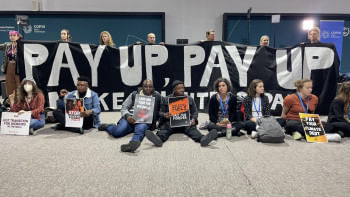Large firms investing in tea plantation

Large corporate groups have started investing in tea plantation in recent years, riding on the wave of demand from local consumers -- a development that has been welcomed by seasoned producers.
In the last few years, Square Group, a giant in consumer products, textile and pharmaceuticals; Ha-Meem Group, an apparel manufacturer and exporter; and Orion Group, an industrial conglomerate, entered the fray.
Three other consumer and industrial giants -- Akij, TK and City -- followed soon after.
“We have a plan to market our own brand,” said Biswajit Saha, general manager of City Group that has bought three tea gardens in recent years.
City Group purchased one of the latest gardens in the country, located in Chittagong, from Brac for about Tk 120 crore in 2015.
Akij Group has also bought a garden, but it has no immediate plan to retail its own brand in the local market.
“Maybe, in long-term we will market our own brand,” said Sheikh Bashir Uddin, managing director of Akij Group.
Another big corporate house Orion Group bought a tea garden in Jaflong in 2005.
After over a decade in operation, the group has decided to build and market its own brand, to be called 'Jaflong Cha'.
Jaflong Cha will be launched in April, according to Ibrahim Khalil, who looks after Orion's tea business. “Our focus will be on green tea,” he added.
The entry of big corporate groups into the tea farming business has been helping the country produce more tea, industry insiders said.
Also, there will be a positive impact on the quality of tea, they added.
In 2016, more than 8.5 crore kilograms of tea were produced, up 26 percent year-on-year, according to data from the government.
Rising local consumption has also been cutting into Bangladesh's tea exports every year.
A decade ago, exports accounted for almost one-fifth of the sector's receipts; now, it has come down to less than 10 percent, according to data from the Bangladesh Tea Board.
However, the sector needs investment to flourish further.
At present, the industry is facing a shortage of talent, knowledge and technology, industry people said.
As a result, tea production in the country remains one of the lowest in the world.
In Bangladesh, the per hectare tea production is 1,200-1,300 kg, which is half of Sri Lanka's; in India, it is 1,600-1,800 kg.
“Tea is like agriculture and we need to introduce new knowledge and technology,” said Bashir Uddin of Akij Group.
Better prices will also encourage owners to invest their money in tea plantation, he added.
Good quality tea is now selling at Tk 180-Tk 200 per kg in auction and the average quality Tk 140-Tk 150.
At the beginning of the season, quality tea sold at Tk 250 a kg, according to market players.


 For all latest news, follow The Daily Star's Google News channel.
For all latest news, follow The Daily Star's Google News channel. 



Comments